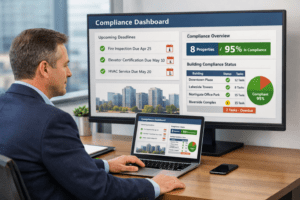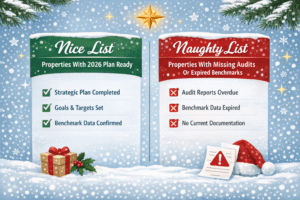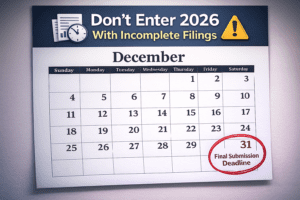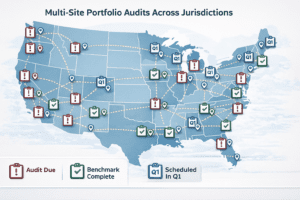Understanding and adhering to the Energy Benchmarking Law in your state is not only a civic responsibility but a strategic business initiative. Through this process, buildings are compared against similar structures to gauge their energy efficiency, which serves as a catalyst for energy conservation and environmental stewardship. This guide unfolds the intricacies of these laws and offers actionable steps for compliance.
I. Introduction
In face of the global energy crisis and climate change, energy benchmarking has become a regulatory requirement in many states across the United States. This proactive approach to energy management involves the systemic tracking and recording of a building’s energy usage to identify opportunities for improvement. With the introduction of the Energy Benchmarking Law, building owners have a legal obligation to measure and report their energy consumption, thus fostering a culture of transparency and continuous improvement in the quest for energy efficiency.
II. Understanding the Energy Benchmarking Law
Energy Benchmarking Law goes beyond a mere environmental initiative; it is a transformative tool that empowers stakeholders to make informed decisions about energy usage. By mandating the annual reporting of energy consumption for commercial and residential buildings, the law encourages owners to proactively manage and reduce their energy footprint. This not only brings about a reduction in operational costs but is also instrumental in achieving broader climate goals.
For comprehensive insights into state-specific laws, organizations like the Building Owners and Managers Association International provide valuable information and advocacy resources related to commercial real estate energy policies.
III. Identifying the Energy Benchmarking Requirements in Your State

Energy benchmarking mandates vary by state, and thus, it’s critical for building owners to identify the exact provisions applicable in their region. For instance, while states like California and New York have robust regulations and support systems, other states might have voluntary guidelines or be in the nascent stages of developing their regulations.
Understanding these nuances is essential. Failing to comply could result in penalties, whereas proactive engagement can lead to benefits such as tax incentives and improved market competitiveness. Utilize local government websites and energy-focused NGOs as resources to stay informed about the latest requirements and amendments in energy policies.
III. Steps to Fulfill the Energy Benchmarking Requirements
A. Energy Audit
The energy audit is a foundational step in the compliance process and serves as a detailed examination of a building’s energy use. It assesses how energy is consumed and identifies areas where savings can be made. Professional auditors employ an array of techniques and tools to collect data on energy consumption patterns, which they analyze to recommend efficiency measures.
B. Implementing Energy Efficient Measures
Implementing the recommendations from an energy audit can range from simple fixes to extensive retrofits. Energy-efficient lighting, advanced window coatings, and high-efficiency heating and cooling systems are among the many measures that may be suggested. Resources like the American Council for an Energy-Efficient Economy provide insights into the most current and effective energy-saving methods.
C. Continuous Monitoring and Improvement
After implementing energy conservation measures, ongoing monitoring is essential for maintaining energy efficiency. This requires setting up a system that regularly records energy consumption data, allowing for periodic assessment and further improvements. Using tools like Energy Star’s Portfolio Manager facilitates this continuous improvement cycle.
D. Compliance Reporting
When it comes time to report under the Energy Benchmarking Law, accuracy and thoroughness are paramount. Compliance reports must reflect a detailed account of energy usage, savings achieved through efficiency measures, and plans for ongoing improvements. Meeting the reporting deadlines issued by your state is imperative to avoid penalties and maintain good standing.
V. Challenges in Fulfilling Energy Benchmarking Requirements
Common Challenges
From financial constraints to technical barriers, building owners may encounter numerous challenges in their journey to compliance. Addressing these issues requires a strategic approach encompassing financial planning, stakeholder engagement, and investment in technology and human resources.
Overcoming Challenges
To tackle financial hurdles, explore state-offered incentives or federal tax credits. In terms of technical expertise, consider contractor services, which can be found through bodies like the North American Technician Excellence (NATE). Additionally, educating your team on energy management best practices can enhance your organization’s capacity to meet and exceed benchmarking requirements.
VI. Conclusion
Energy benchmarking is a strategic imperative in today’s energy-conscious world. It demands a proactive and informed approach that benefits not just the environment but the economic health of businesses and communities. By meticulously following the steps laid out in this guide, stakeholders can effectively navigate the energy benchmarking compliance landscape, contributing to a more sustainable and resilient future.
In conclusion, while fulfilling the **Energy Benchmarking Law** requirements might seem daunting at first, the process provides a clear roadmap to heightened energy efficiency and sustainability. Embrace this opportunity to lead your organization towards a greener horizon, with the promise of financial savings and a reduced environmental footprint.
VertPro.com serves as a resourceful platform for property owners and managers seeking to enhance their buildings’ energy efficiency. The site offers a range of services, including Commercial Energy Audits, Benchmark Compliance consultancy, and a Construction Marketplace. At the heart of VertPro® is a suite of SaaS technology-based solutions designed to assist in navigating the complexities of Energy Benchmarking and Energy Audits/RCx Plus, while ensuring adherence to over 60 Energy Benchmarking and Energy Efficiency Laws across the country.
For those looking to improve their property’s energy usage and operational value, VertPro.com provides a diverse array of tools and information. The site aims to facilitate a better understanding of energy efficiency practices and legislation, helping building owners and property managers make informed decisions about their energy strategies while complying with all energy ordinances and laws.
















